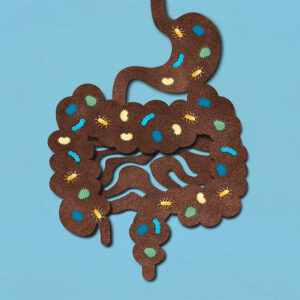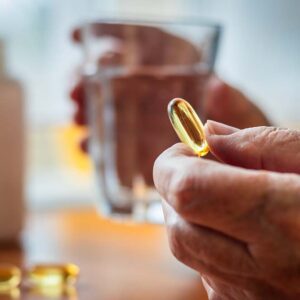
What the Heck Is Stevia? Part 2
Last issue, we covered the history of stevia and the four different versions of it that you can find today, including the mechanically-processed-not-so-natural- “stevia” that is Truvia (avoid this brand!).
But for less-refined stevia, the question remains: is it actually healthy? Or like any other calorie-free sweetener out there, is it detrimental to health?
Well, when I dug into the research, I was pleasantly surprised. Research in both animals and humans suggests this sweetener could actually be beneficial to health, particularly in regards to its beneficial effects on blood sugar.
In one Spanish study, researchers gave stevia extract to mice for four weeks and found that it did not significantly affect their blood sugar. The also tested it in humans and determined it has a low glycemic index, meaning that it doesn’t cause a high spike in blood sugar.[1]
At least three other animal studies have confirmed that stevia can help keep blood sugar levels healthy.
Then, I found another human study where researchers gave participants either stevia, aspartame, or table sugar (sucrose) and fed them a meal. The folks who got the stevia had less of an after-meal blood sugar and insulin spike, which helps reduce the risk of developing diabetes.
Even more impressive, stevia had a similar effect in people already diagnosed with Type 2 diabetes.[2]
One important thing to note is that many of the studies showing positive results used only one glycoside from stevia: stevioside. So if you’re interested in using stevia for its blood sugar benefits, be sure to use a pure stevia powder or extract, not refined rebaudioside A.
Stevia is reported to also have antioxidant and anti-inflammatory properties and is considered nonacidic, so it shouldn’t contribute to cavities.[3]
And just a few months ago, researchers scanned all of the available literature and food allergy reports since 2008 to determine if stevia is a potential food allergen, since it is a member of the same family as ragweed. They found that neither food manufacturers nor food allergy networks have reported any significant number of adverse reactions to stevia.[4]
Overall, stevia appears to be a safe and potentially advantageous sweetener to use, but that’s with one caveat: Avoid the highly refined stuff, including Truvia.
Between processed food manufacturers and pharmaceutical companies, time has proved again and again that when we mess with something from nature, our bodies react badly.
And while I do believe stevia is better than sugar (and certainly better than artificial sweeteners), I still advise to use it as a treat and in moderation.
You can get 100% natural, dried powdered stevia online from Mountain Rose Herbs. Some say the pure stuff has a bitter aftertaste, but I’m going to give it a try. As soon as my order comes in, I’ll be sure to report back.
If you want a stevia extract product that’s not likely to be as bitter, look for SweetLeaf brand. Its ingredients include only organic stevia extract and inulin, a natural fiber that may help feed good gut bacteria. Sweetleaf brand doesn’t use any solvents or enzymes to extract the sweet glycosides from their stevia.
If you have trouble with inulin (it makes some people bloat), try Stevita liquid stevia extract. It contains only stevia, distilled water, and grapefruit seed extract (a natural preservative). Vitacost.com is my favorite source for items such as this.
To living well,
Jasmine LeMaster
[1] Safety assessment of stevia rebaudiana bertoni grown in southeastern Mexico as food sweetener. Nutr Hosp. 2014 Sep 1;30(3):594-601.
[2] Potential Roles of Stevia rebaudiana Bertoni in Abrogating Insulin Resistance and Diabetes: A Review. Evidence-Based Complementary and Alternative Medicine Volume 2013
[3] An in vitro and in vivo comparison of the effect of Stevia rebaudiana extracts on different caries-related variables: a randomized controlled trial pilot study. Caries Res. 2014;48(1):19-23.
[4] Steviol glycoside safety: are highly purified steviol glycoside sweeteners food allergens? Food Chem Toxicol. 2015 Jan;75:71-8.
View More Free Articles
REAL Drug-Free Back Pain Relief
Recently, I’ve had several exasperated people ask me, “Is back pain something I just have to live with?” I battled chronic back pain for years, so I completely understand why some folks feel so hopeless about finding relief. In fact, I used to think I was doomed to a life of pain and limitations, too....
Mailbag: When to Worry About Memory Lapses
“I’ve been experiencing some memory lapses recently, and I’m worried it might be early signs of Alzheimer’s disease. My mother also had it. What symptoms should I look out for?” – Ann Hi Ann, It’s important to recognize that some degree of memory loss is a normal part of life. Our brains constantly process and...
The Unforeseen Link Between Your Gut and Your Waistline
As the weather warms up and summer approaches, many of us start thinking about shedding those extra pounds… We dust off our gym memberships, stock up on salad greens, and vow to finally fit into those shorts from last year. But what if I told you that the key to achieving a healthy weight might...
Defy Aging with the Sunshine Vitamin
If there’s one thing you absolutely must do for your health, it’s to maintain healthy vitamin D levels. I can’t stress this enough. And if you think vitamin D is only good for beefing up your bones, think again. Because while vitamin D is crucial for maintaining healthy bones, recent research has revealed that this...
Detox Your Drinking Water with a Microplastics Purge
We’re surrounded by plastics. They’re everywhere, from the obvious plastic shampoo bottle to the not-so-obvious clothing on our backs. From the moment we get up in the morning until we slide beneath the sheets at night, we are in contact with them. Heck, some bedsheets contain plastic fibers, so you may ALSO be exposed while...
The TRUTH About Word Finding Troubles
Picture this. You’re having a lively conversation with a friend, and suddenly, find yourself grasping for a word that’s just out of reach. You KNOW it’s in there somewhere, hiding in the recesses of your mind. But no matter how hard you try, you can’t seem to pin it down. When you have trouble word...
FDA Finally Admits “BANNED” Soda Ingredient is Unsafe
I’m not a soda fan for MANY reasons. I wrote an entire book on the dangers of sugar, for example. And research links soda drinking to fatty liver disease, heart disease, high blood pressure, diabetes, obesity, and Alzheimer’s. And the diet stuff is no better. Fake-sugar-filled diet sodas cause “metabolic confusion,” and artificial sweeteners are...
Discover WHY We Accidentally Overeat (and How to Stop)
Picture this… You finish eating a nice meal feeling just fine. But then, 20 minutes later, you’re groaning and clutching your belly because you feel uncomfortably stuffed. If this sounds familiar, you’re in good company. Most of us have had this happen. Science reveals why accidental overeating occurs… and what we can do to avoid...
Find Exercise Exhausting and Painful? Try THIS Natural Fix
If you’ve heard it once, you’ve heard it a thousand times: “You need to exercise.” And sure, you know how vital it is to healthy aging. But let’s be honest, sometimes it feels nearly impossible to get moving—especially when you know you’ll be sore for DAYS after. However, hold on to your seat because I’ve...
Mailbag: Unsteady on Your Feet? Now What?
“I’ve been having trouble with my balance lately and have fallen a couple of times. Could this be related to osteoporosis or another underlying cause?” – John Hi John, It’s always concerning when someone experiences balance issues or falls. While osteoporosis can contribute to an increased risk of falling, several other underlying causes should also...









